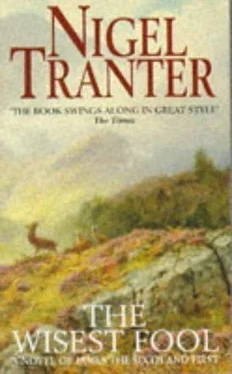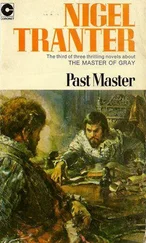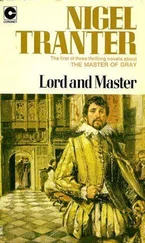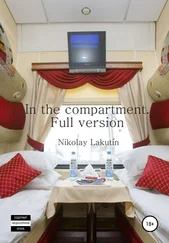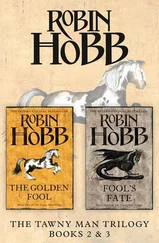Nigel Tranter - The Wisest Fool
Здесь есть возможность читать онлайн «Nigel Tranter - The Wisest Fool» весь текст электронной книги совершенно бесплатно (целиком полную версию без сокращений). В некоторых случаях можно слушать аудио, скачать через торрент в формате fb2 и присутствует краткое содержание. Жанр: Исторические приключения, на английском языке. Описание произведения, (предисловие) а так же отзывы посетителей доступны на портале библиотеки ЛибКат.
- Название:The Wisest Fool
- Автор:
- Жанр:
- Год:неизвестен
- ISBN:нет данных
- Рейтинг книги:4 / 5. Голосов: 1
-
Избранное:Добавить в избранное
- Отзывы:
-
Ваша оценка:
- 80
- 1
- 2
- 3
- 4
- 5
The Wisest Fool: краткое содержание, описание и аннотация
Предлагаем к чтению аннотацию, описание, краткое содержание или предисловие (зависит от того, что написал сам автор книги «The Wisest Fool»). Если вы не нашли необходимую информацию о книге — напишите в комментариях, мы постараемся отыскать её.
The Wisest Fool — читать онлайн бесплатно полную книгу (весь текст) целиком
Ниже представлен текст книги, разбитый по страницам. Система сохранения места последней прочитанной страницы, позволяет с удобством читать онлайн бесплатно книгу «The Wisest Fool», без необходимости каждый раз заново искать на чём Вы остановились. Поставьте закладку, и сможете в любой момент перейти на страницу, на которой закончили чтение.
Интервал:
Закладка:
In the circumstances, the so dramatic ghost-and witch-haunted fourth act, with cave and cauldron, scarcely gained the rapt attention and horror it deserved-although there were cheers for the re-appearance of Banquo, however wraith-like. The sudden switch to MacDuff's castle in Fife was lost upon most onlookers, who, having once gone astray were not greatly concerned to return. Even the English Court scene failed to grip or be understood, apart from MacDuff's challenging question, "Stands Scotland where she did?" which received a notably vehement and unamimous answer from a large part of the gathering. And the final line of this act, Prince Malcolm's cry, "The night is long that never finds a day!" was taken up by all, with heartfelt fervour.
The last act, back in Scotland, at Dunsinane, interested Alison and Heriot more than it did most-though that was scarcely the fault of the playwright, who had fulfilled his exceedingly onerous task nobly, nor of Ben Jonson, whose no fewer than seventeen different scenes were a triumph of invention and design, even though none were recognisably Scottish in character. Success in the presentation of dramatic entertainment depends on many factors-and few of the necessary were present at Hampton Court that night Birnam Wood on the move, admittedly, was a great success, with the entire Court hallooing loudly, as at a buck-hunt; and MacBeth's head, dripping realistic gore and upraised on MacDuff's spear, was cheered to the echo. All, even King James, accepted that as the finish-and so were spared Malcolm's valedictory speech, however hopefully it began, "We shall not spend a large expense of time…"
Probably Will Shakespeare was as relieved to see the end as were his audience. "Think you this piece will serve to endear us Scots to the longsuffering English?" Lennox wondered, as they made their way out in the royal train. "Since that, I understand, was its object"
"I doubt it." Heriot sighed. "Not to this Court, at any rate- which I fear is far beyond conversion. It may serve better with the commonality of playgoers, who have longer wits if shorter pedigrees! Who knows? For there is much good in it. Had we been able to heed it properly, I would have enjoyed it, I think."
"Poor Master Shakespeare," Alison sympathised. "Who would be a playwright? I think it was splendid-or should have been. He was casting his pearls before swine, here."
"It is James I am sorry for," her husband said. "Shakespeare will know its worth and will play it to better effect another time. But this was the King's conception, his dream to serve Scotland and the Scots. He will be a sore disappointed man this night- though, I swear, he will never show it Have a thought for Jamie -even though half the fault was his own."
The Heriots did indeed go to see the play of MacBeth again, some weeks later, when it was performed before a more conventional audience at the Globe, Southwark-and enjoyed it greatly. But now there was another Banquo, for Will Shakespeare had finally done what he had been threatening to do for long-shaken the dust of London from his feet and gone back to his native Stratford, in Warwickshire, there to live the better life. George Heriot asked himself, and his wife, whether the playwright was not the wiser man than he? Alison was young enough still to find the bustle and excitement of the city and Court alluring- but she agreed that a small landed property in green Strathearn, say, near to Methven would make a joyous contemplation. Perhaps in a year or two…?
Not that the news from Scotland that whiter and spring of 1609-10 was such as to entice exiles home. Trouble was brewing, harshness and uncertainty both were rife in the rule and governance, and rumours of plots, uprisings, even armed invasion from abroad, abounded. On the face of it, the struggle appeared to be between Dunbar and the rising tide of Catholicism, but those in the know tended to see it as between King James in London and Patrick, Lord Gray. Dunbar, now to all intents supreme in Scotland, was highly unpopular and known to be feathering his own nest hugely. But against Gray he seemed to be able to achieve nothing, for the latter appeared on the surface to be leading a blameless, innocuous and normal life for a peer of the realm, sheriffing it in Angus, managing large estates there and in Fife, making entirely worthy public appearances in Dundee, Aberdeen, Glasgow and the capital, ornamenting all he touched. But there was little doubt that he, not Dunbar nor yet Dunfermline, was beginning to all but control the Privy Council, as once he had done before. And that a constant succession of unknown visitors, some said to be Jesuits, came and went by night at Castle Huntly in the Carse of Gowrie, Broughty Castle and other of his houses.
Heriot got most of his information from letters sent by Mary Gray to Lennox. And from these, certain significant pointers emerged. For instance, that the Lord Gray had stood security to the Council in no less than twenty thousand pounds, for the captive Earl of Orkney, in order that he should be freed from Edinburgh Castle for a short space-a vast sum to hazard for so apparently small privilege. It was thought that Orkney had been quietly spirited off to Castle Huntly for some important conference-and then as quietly returned to durance vile. Then, only a month or so later, Patrick Gray was again standing surety to the Council, this time for five thousand pounds, for Orkney's younger brother James Stewart, that he should cease importing arms and ammunitions into the Isles of Orkney from France and confine his person to a limited area of mainland Scotland-though that area centred on Angus within Gray's influence and sheriffdom. Again, that same spring, he was standing surety-though only for five hundred merks this time-for Sinclair of Murkill, again not to transport arms and munitions to Orkney. Others, too, troubled the Council with secret and ominous activities-and for all, Patrick Gray, or one of his Catholic friends, nobly stood cautioner. It seemed that he now had almost unlimited funds at his disposal.
King James, as it happened, was also in funds-for the Ulster plantation scheme and baronetcy-selling was going quite splendidly, with good Protestant applicants falling over each other to be involved, from southern Scotland and north-west England especially. Some of the wretched Irish proved a little difficult- as they always did, of course-demurring about being deported southwards; but James thought up an excellent alternative, no fewer than eleven thousand of the most militant males to go to Scandinavia to help the Danes fight the Swedes-at King Christian's expense, naturally, a valuable export. Since James was at the same time working very hard behind the scenes to arrange a peace between the Swedes and Danes, the thing was the more delightful and did no injury to his well-known pacific reputation
Despite these preoccupations-and the continuing education of young Robin Carr-James did by no means entirely overlook his ancient Scottish realm He ordered the Earl of Orkney to be removed from Edinburgh to Dumbarton Castle, into much stricter imprisonment, and indeed instructed Tam Hamilton to start gathering material for a trial of his cousin on a charge of high treason. He issued a proclamation that any other of the Orkney Stewarts, legitimate or otherwise, found in mainland Scotland, would be apprehended likewise and held for similar trial-and did indeed collect both the aforementioned James Stewart and an illegitimate brother Edward. He forbade the carrying of arms and munitions of war into any Scottish or Orkney port, under pain of treason. He promulgated new regulations against practising Catholics meeting together-although he emphasised that freedom of worship was still a man's inalienable right, so long as it was done in private. Moreover, the sum of five thousand pounds was to be distributed amongst Scots parish ministers who preached adequately in support of the King's policies, as from Christ's own Vice-regent And finally, with a sudden edict, he declared that the ancient Scottish Privy Council, with its ninety-one members, including all the Scots Lords of Parliament, had outlived its usefulness and was herewith disbanded and nullified. In future it would consist of only twenty-six members and ah appointed by himself. He appointed ten herewith, all carefully chosen, half of them bishops. So Patrick Gray was out, dismissed from the Privy Council for the second time
Читать дальшеИнтервал:
Закладка:
Похожие книги на «The Wisest Fool»
Представляем Вашему вниманию похожие книги на «The Wisest Fool» списком для выбора. Мы отобрали схожую по названию и смыслу литературу в надежде предоставить читателям больше вариантов отыскать новые, интересные, ещё непрочитанные произведения.
Обсуждение, отзывы о книге «The Wisest Fool» и просто собственные мнения читателей. Оставьте ваши комментарии, напишите, что Вы думаете о произведении, его смысле или главных героях. Укажите что конкретно понравилось, а что нет, и почему Вы так считаете.
